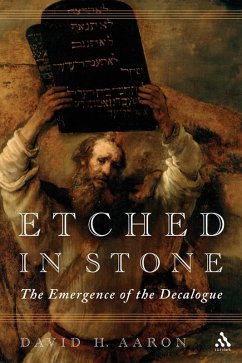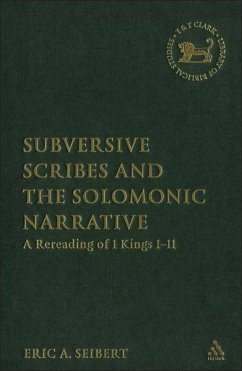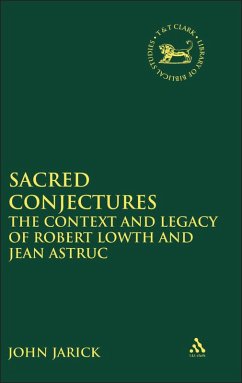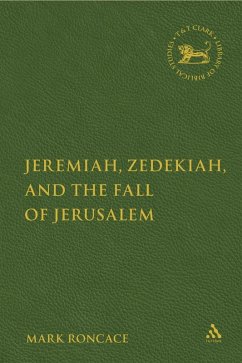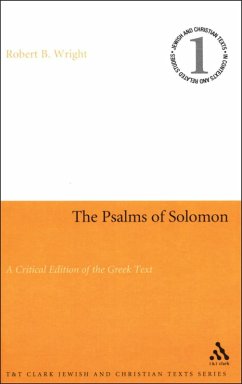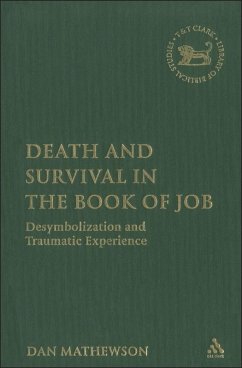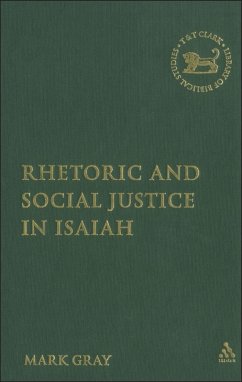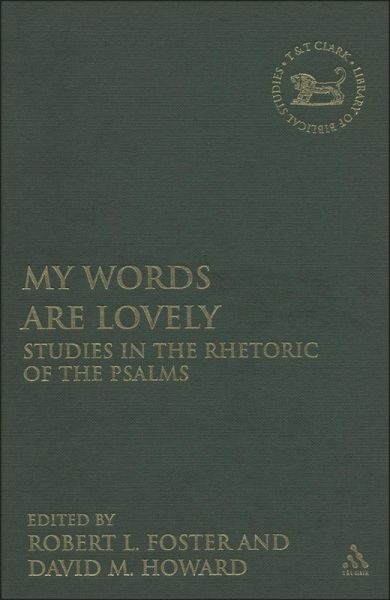
My Words Are Lovely (eBook, PDF)
Studies in the Rhetoric of the Psalms
Redaktion: Foster, Robert L.; Howard, David M.
Versandkostenfrei!
Sofort per Download lieferbar
137,95 €
inkl. MwSt.
Weitere Ausgaben:

PAYBACK Punkte
69 °P sammeln!
This collection of essays advances psalms studies through a concerted focus on the persuasive aim of psalmic poetry, and it offers unique perspectives on rhetorical devices within the psalms. These essays include discussions not only of structure, literary devices, and rhetorical strategies, but the authors also dialogue with classical rhetoric, modern psalms research, and current trends in rhetoric and cognitive science. Part One discusses various theoretical issues. Several articles discuss lament within the psalms, including the function of appeals to pathos, lament's compensation for monot...
This collection of essays advances psalms studies through a concerted focus on the persuasive aim of psalmic poetry, and it offers unique perspectives on rhetorical devices within the psalms. These essays include discussions not only of structure, literary devices, and rhetorical strategies, but the authors also dialogue with classical rhetoric, modern psalms research, and current trends in rhetoric and cognitive science.
Part One discusses various theoretical issues. Several articles discuss lament within the psalms, including the function of appeals to pathos, lament's compensation for monotheistic piety, and the need for more attention to the laments' poetry and rhetoric to understand their meaning. Other essays address the psalmists' self-presentation, the ideological identity of the wicked within the psalms, faunal imagery with regard to tenor and vehicle, the topoi related to God in call to praise psalms, the function of gaps in prayers for help, and the rhetoric of kingship psalms as attempts to persuade readers of the legitimacy and efficacy of kingship.
Part Two consists of rhetorical analyses of several psalms or psalm pairs, each with distinctive emphases. These include a discussion of Psalm 8 from a bodily perspective, the nature and implication of nature language within Psalm 23, the structure of Psalm 102 within Book IV of the Psalter along with its theology and lament, the forensic case of Psalms 105 and 106 emphasizing the role of narrative in forensic rhetoric and comparing the results with classical rhetoric, and an analysis of the rhetorical aim of Psalm 147, subjected to developments within cognitive science.
Part One discusses various theoretical issues. Several articles discuss lament within the psalms, including the function of appeals to pathos, lament's compensation for monotheistic piety, and the need for more attention to the laments' poetry and rhetoric to understand their meaning. Other essays address the psalmists' self-presentation, the ideological identity of the wicked within the psalms, faunal imagery with regard to tenor and vehicle, the topoi related to God in call to praise psalms, the function of gaps in prayers for help, and the rhetoric of kingship psalms as attempts to persuade readers of the legitimacy and efficacy of kingship.
Part Two consists of rhetorical analyses of several psalms or psalm pairs, each with distinctive emphases. These include a discussion of Psalm 8 from a bodily perspective, the nature and implication of nature language within Psalm 23, the structure of Psalm 102 within Book IV of the Psalter along with its theology and lament, the forensic case of Psalms 105 and 106 emphasizing the role of narrative in forensic rhetoric and comparing the results with classical rhetoric, and an analysis of the rhetorical aim of Psalm 147, subjected to developments within cognitive science.




